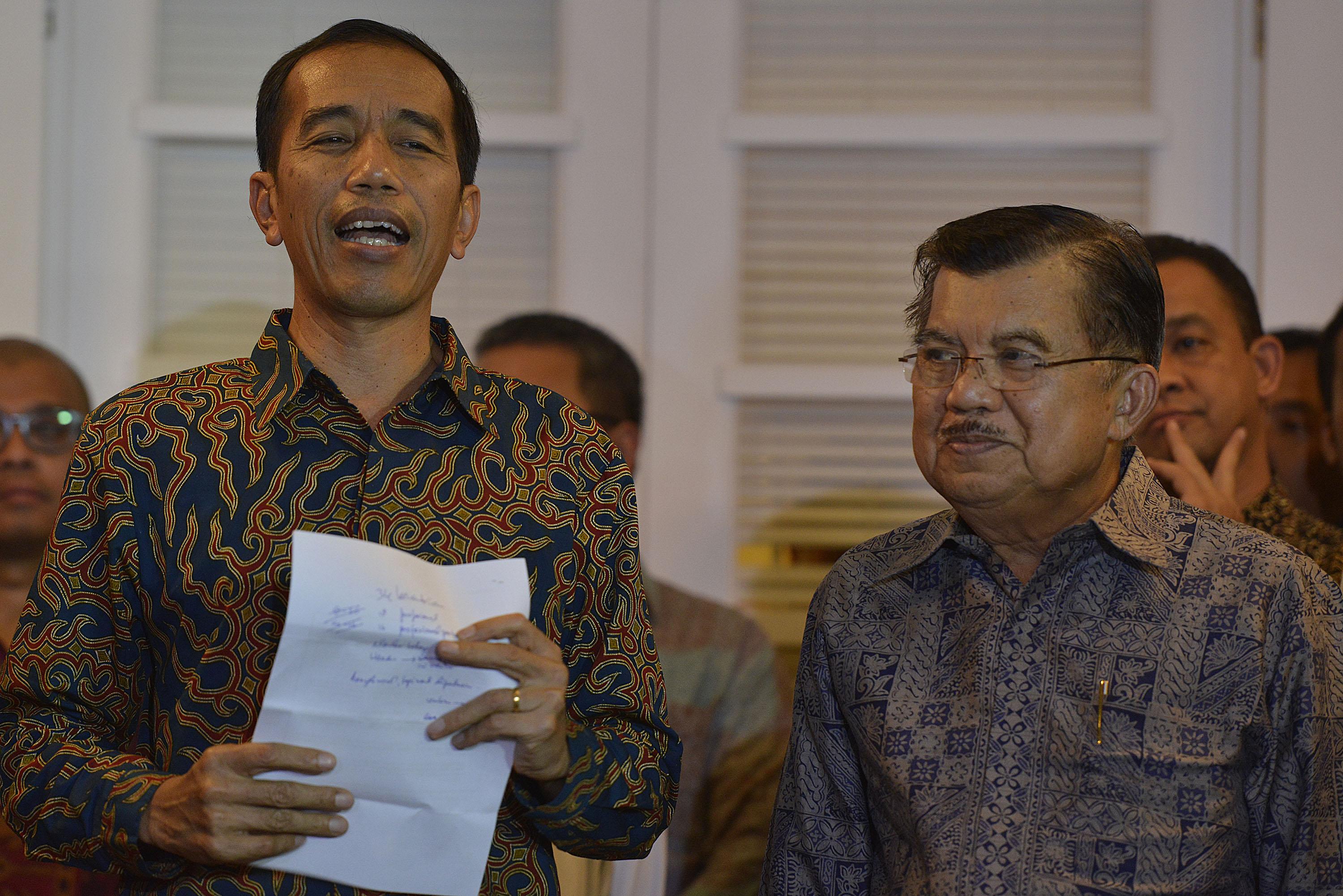Reality Gets in Way of Jokowi's 'Dream Team' Cabinet
Bareksa • 27 Oct 2014

Presiden terpilih Joko Widodo didampingi Jusuf Kalla mengumumkan postur kabinetnya yang berjumlah 34 kementerian dan diisi 18 orang menteri dari kalangan profesional dan 16 orang dari profesional perwakilan partai politik (ANTARA FOTO/Widodo S)
The Cabinet turned out to be a "second-best" line-up, with many strong, credible figures, and possible weak performers.
Bareksa.com - Some might have expected President Joko Widodo to offer a "dream team" for his Cabinet line-up, especially after its announcement was delayed several times. But this was not to be.
The Cabinet he announced yesterday turned out to be a "second-best" line-up, with many strong, credible figures to see through key programmes he wants to implement.
Still the team also contains a number of leaders seen as possible weak performers and those whom civil society had been critical of, as Mr Joko had been pressured from within his party and coalition to pick them.
But this is the reality of the present multi-party political system, and suggests that it is not possible to form the best team when the executive branch needs to have adequate support from Parliament and various factions to run effectively.
"This is part of power-sharing with the political parties that support Joko Widodo," Mr Muradi, a political analyst at Padjadjaran University, told The Straits Times. "It is part of the reality in Indonesian politics. Some names are those whom Joko Widodo obviously picked reluctantly, while other names are the figures who did not work and sweat during the presidential campaign, but got the posts."
Mr Joko had begun identifying and shortlisting ministerial candidates weeks earlier, bearing in mind their personal qualities and capabilities.
But every Indonesian Cabinet has also had to bear in mind representation from political parties, as well as ensure that individuals from major ethnicities, religions and islands are represented, as well as sufficient women ministers.
Mr Joko had also agreed to take six ministers from his own Indonesian Democratic Party- Struggle, three each from core coalition partners the National Democratic Party and the National Awakening Party, as well as two others from the People's Conscience (Hanura) Party and the United Development Party.
He had initially planned to announce his Cabinet a week before his Oct 20 inauguration, and then moved this to Oct 22, and then Oct 24, before yesterday's announcement.
On the one hand, this suggests weakness on the part of the President, in spite of his being endowed with wide-ranging powers to govern, in particular, the prerogative to appoint ministers.
But on the other hand, Mr Joko introduced what many saw as a defence mechanism to fend off intervention when he decided to submit the names of ministerial candidates to the corruption eradication commission (KPK) and anti-money laundering agency for screening. Knowing that he could not afford to strain ties with party leaders by rejecting some favoured names, the move allowed him to let the system reject the "bad" names.
Out of 43 names submitted, eight were labelled unfit for ministerial posts by the KPK as they could be implicated in corruption investigations.
Still, the pressure has taken its toll on the President. The usually media-savvy Mr Joko was testy with reporters asking about delays in the Cabinet announcement last Thursday.
Many Indonesians hope the new appointments will make a mark soon enough to overcome reservations many still harbour about some of their ministers. (Source: The Straits Times)